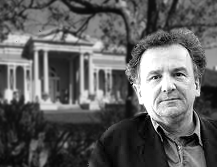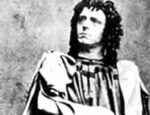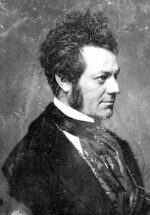Description
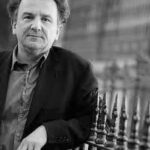 Meet Francis and Betsheb, the low-class Australians who in Louis Nowra’s Australian classic play The Golden Age (1985) inherit the roles of Pylades and Iphigenia in his ancient Greek co-text, Iphigenia in Tauris. The picture is of a performance by the Brisbane company Thunder’s Mouth in Cumbernauld, Scotland in 1991.
Meet Francis and Betsheb, the low-class Australians who in Louis Nowra’s Australian classic play The Golden Age (1985) inherit the roles of Pylades and Iphigenia in his ancient Greek co-text, Iphigenia in Tauris. The picture is of a performance by the Brisbane company Thunder’s Mouth in Cumbernauld, Scotland in 1991.
Set in 1939-45, The Golden Age is inspired by the true story of a small community descended from convicts deported to Australia, who got lost in the outback of Tasmania in the mid-19th century. Through the trauma inflicted on their ancestors, lack of cultural roots to hold onto, and inbreeding, they developed a strange dialect and become increasingly prone to hereditary abnormalities. In 1939 they were discovered and put in sanatoria by the Australian government. They all died, most of them of tuberculosis. In this play this strange community in part symbolizes the experience of aboriginal Australians after the European colonisation of Australia; only a handful are left, including the ‘Iphigenia’ figure Betsheb. The community of Iphigenia/Betsheb’s is ‘discovered’ in the Tasmanian outback by two young Australian men, the middle-class Peter Archer (Orestes) and his working-class friend Francis Morris (Pylades).
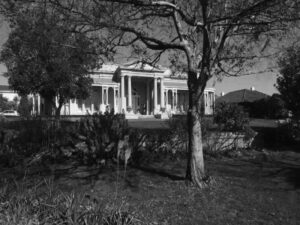 Framing the play are two productions of Iphigenia in Tauris set outside a ‘Greek’ temple in the neoclassical garden of a prosperous white Hobart family, ‘elite’ performances done for charity by Dr and Mrs Archer. Dr and Mrs Archer were historical figures in Hobart, and they really did put on such productions of Euripides’ play in their garden. In the play these performances represent the new professional-class Australian immigrant community desperately trying to import ‘old’ European, colonial culture into a frightening new environment. The ‘high’ culture represented by the garden and the Greek plays is also contrasted in social terms with the impoverished lower-class Roman Catholic background from which Francis (like Nowra himself); as someone who has risen socially, he feels a different kind of rootlessness and exile—or outcastin’, the key word of the play.
Framing the play are two productions of Iphigenia in Tauris set outside a ‘Greek’ temple in the neoclassical garden of a prosperous white Hobart family, ‘elite’ performances done for charity by Dr and Mrs Archer. Dr and Mrs Archer were historical figures in Hobart, and they really did put on such productions of Euripides’ play in their garden. In the play these performances represent the new professional-class Australian immigrant community desperately trying to import ‘old’ European, colonial culture into a frightening new environment. The ‘high’ culture represented by the garden and the Greek plays is also contrasted in social terms with the impoverished lower-class Roman Catholic background from which Francis (like Nowra himself); as someone who has risen socially, he feels a different kind of rootlessness and exile—or outcastin’, the key word of the play.
For further discussion please see this article.

